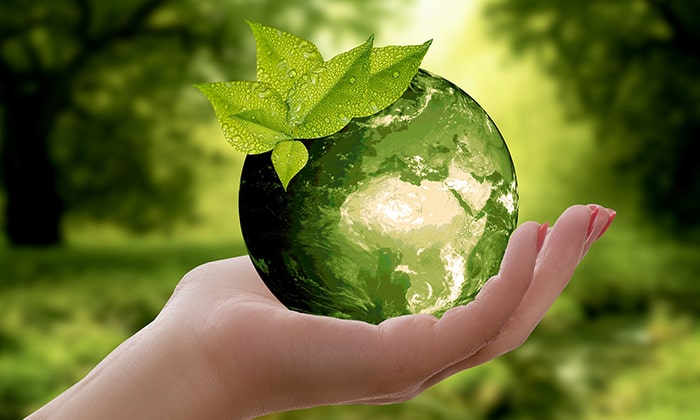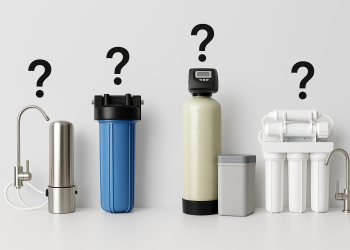Everyone can take steps towards making the planet a better, more sustainable place to live. We can take actions, big and small, to protect the Earth, reverse the damage that has already been done, and create a better foundation for future generations. But if you’re new to environmentally-friendly thinking, it can be daunting to know what to do. Which is why these are ten easy ways you can be more eco-friendly.
1. Adjust your lighting usage. Get in the habit of turning lights off when you leave the room or change your bulbs for a more efficient wattage to conserve energy. If you get good light into your home from windows, you may only need to turn lights on when the sun starts to go down. Plus, you might see a difference in your electric bill every month!
2. Keep track of your water usage. Instead of continuously running tap water, fill your sink with clean water to rinse soapy dishes. Also, keeping better track of your time in the shower can drastically alter your water consumption. Cutting water usage in these areas can help you decrease your impact and move you towards environmental stability.
3. Find out about recycling in your community. Most cities will have recycling programs, some of which use recycling to help distribute funds back into the community! Find out how you can get involved in recycling in your community by checking if they have pick-up options, or finding out where you can drop off your recyclable materials.
4. Adjust your thermostat. If you’re at work all day, there’s no reason to keep your home precisely 75 degrees. Consider making adjustments with your heating and cooling, so long as it’s bearable. You can always readjust it when you get home to make yourself comfortable.
5. Use the seasons to your advantage. The sun can provide you with excellent heating, but it can become unbearable as well. Invest in thicker curtains, so while the sun is out, you can help keep your home cooler (and avoid AC impacted bills). Conversely, in the winter, open the curtains when the sun shines to warm up the room instead!
6. Search for treasures in thrift shops. Second-hand shopping is a great way to give life to old products you would typically buy new. Additionally, you’ll be more likely to find unique treasures that fit your style! You can also use thrift stores, donation shops, or organizations in your community to donate your used products instead of merely throwing them away. That way, someone else can enjoy them, instead of contributing to landfills.
7. Skip paper plates and plastic utensils. It might be a hassle to do dishes after meals, but it’s kinder to the environment. Paper plates and plastic utensils ultimately wind up in landfills. Remember: plastic utensils don’t break down like organic matter or paper. So once they’re in the landfill, they’re going to stay there for a long time.
8. Reuse your bags as much as possible. The debate on what bag works best ultimately lands on how frequently the bag was used. Paper bags can be recycled, single-use plastic bags usually end up in landfills, and linen tote bags require thousands of uses to match the energy to create them. When you go grocery shopping, try and use whatever you have as frequently as possible. Limiting the number of bags you acquire will do more for the environment than which container you use.
9. Use fans instead of the air conditioner when you can. There’s a reason for inventing the air conditioner, but if the weather is good enough, use that opportunity to give the ac a rest and get some fresh air into your home! Open the windows and turn on a fan, trying to create some circular airflow throughout your home. You’ll use less power and get fresh air at the same time.
10. Pay attention to your habits and behaviors. The most important thing you can do is pay closer attention to your habits and make minor adjustments. Sometimes, everyone will do things that aren’t eco-friendly just out of habit or convenience. However, when you begin to pay attention to your behaviors, you can identify small areas to alter in order to form new habits that can help protect the Earth.
Whether you’re entirely new to being eco-friendly or you’re already making changes, there are proper steps to help you live greener. Once these develop into habits, you can continue branching out into new ways of living eco-friendly.








